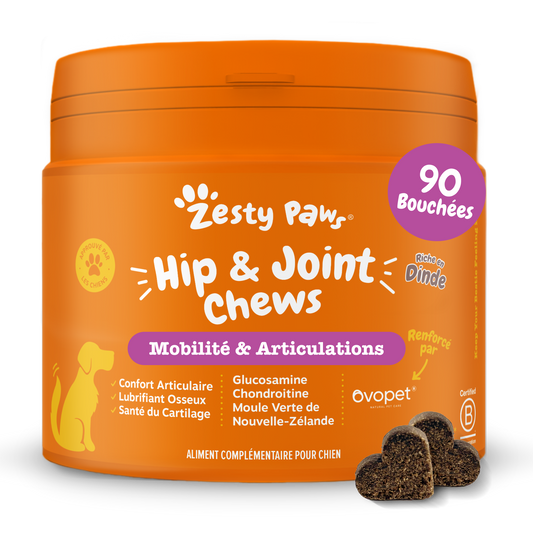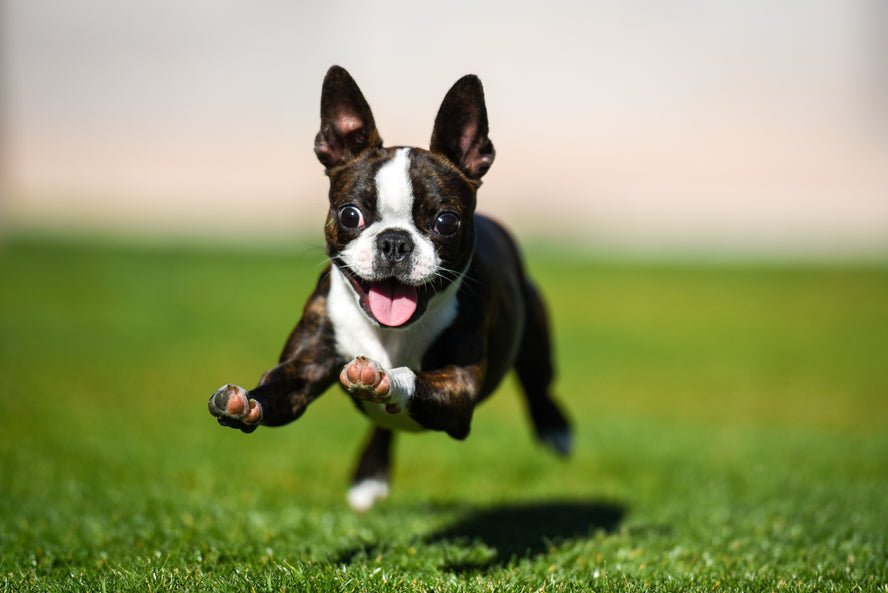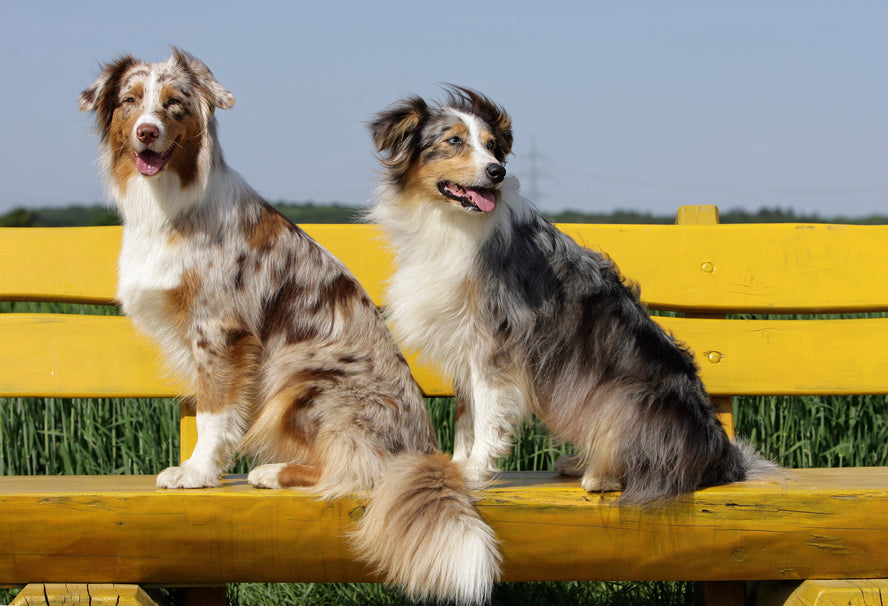Australian Shepherds: the hyper-active ones
Australian Shepherds are known for their high level of intelligence, their loyalty, their cuddly side and their boundless energy! Always up for a hike, they love to run and play for hours. So obviously, when they start to show signs of pain or discomfort in the hips or hind legs, they tend to lose their vitality.
Labradors: the playful ones
Known for their playful nature, Labradors are predisposed to joint stiffness due to their high activity level, large size and genetic factors. Labradors love their food, so they are more likely to be overweight. Obesity can therefore also exacerbate joint problems in this breed.
Dachshunds: the distinguished ones
With their elongated bodies and short legs, dachshunds stand out! Due to their unique measurements, the risk of joint stiffness is higher, particularly in the knees, hips and back. Monitoring weight gain and avoiding excessive jumping will be key to maintaining their mobility.
Spaniels (Cavalier King, Cocker or Springer for example) - always further!
Energetic and lively, Spaniel family dogs may encounter joint stiffness, particularly in the hips, from excessive activity. Consistently monitoring their mobility and promptly seeking advice from a veterinarian upon noticing any mobility issues can greatly benefit these athletic dogs.
German Shepherds: Kings of Agility
Recognised as one of the top working breeds, these agile and smart dogs excel in various tasks. However, their large size puts them at a higher risk from developing stiff joints. It is therefore important to keep an eye on them and consult quickly in the event of a change in attitude.
Golden Retrievers: the couch potatoes
Genetic factors and weight management play a crucial role in preventing joint stiffness in Golden Retrievers. Although they can sometimes be homebodies, Goldens need regular exercise and an appropriate level of activity.
Rottweilers : the fast ones
If Rottweilers are prone to joint stiffness, it’s because they are forces of nature! Fast and incredibly strong, they will need to be monitored as they age.
The St. Bernards: the imperturbable ones
Although they are not the type to panic and sometimes seem to walk in slow motion, St. Bernards can also suffer from joint stiffness. The reason is their huge size which increases the pressure on their joints. A point to be monitored throughout their lives.
Your dog is more than just a pet, they are a family member. You know them so well you will have no trouble recognising the signs of joint stiffness in your four-legged companion.
Although joint stiffness is commonly associated with aging dogs, it is important to note that some breeds are inherently more prone due to genetic factors or physical structure.
Here are some tips to help you identify joint stiffness in your dog:
- Excessive joint licking
- Difficulty getting up after a nap or bed
- Reduced mobility (getting into the car or climbing into an armchair seems more complicated)
- Lethargy and low morale
- Sensitivity to touch
How to support your dog's joint health at all stages of his life:
- Puppy: avoid excessive exercise and rough play as much as possible to avoid joint tension.
- Young dog: monitor exercise intensity to prevent stress on growing bones and joints.
- Senior: keep an eye out for signs of joint stiffness and consult a vet as soon as you see a tell-tale signs .
If you have concerns about your dog's joint health, seek advice from your veterinarian to ensure they receive the necessary care and support.




